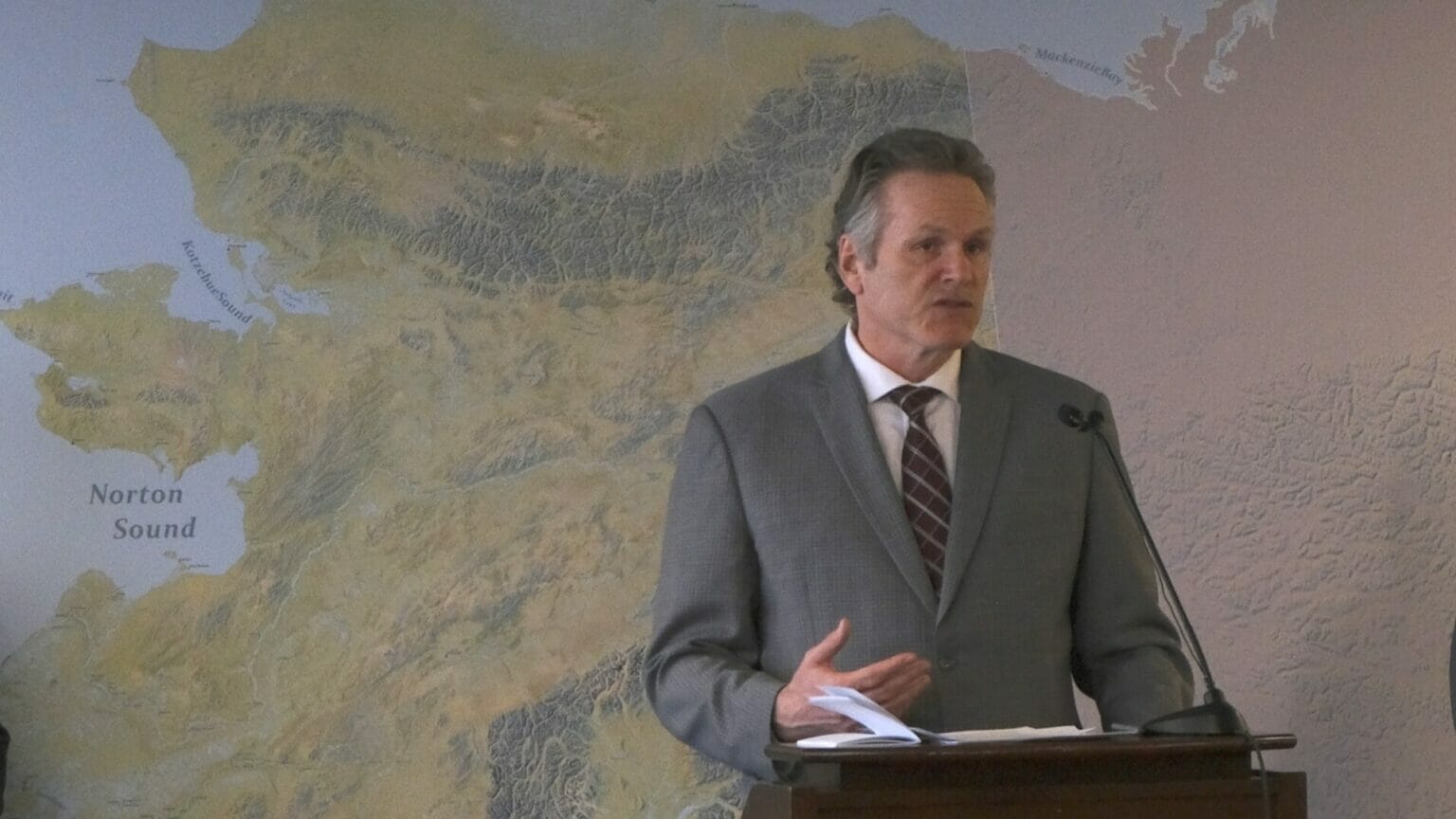JUNEAU — A prolonged filibuster by the Alaska House minority did stop a ban on transgender girls competing in girls’ sports from passing the House in a 22-18 vote Sunday night.
Lawmakers spent more than 17 hours cumulatively discussing the bill in the final week of the legislative session, which must end on Wednesday.
Republicans in the House majority said the bill was a priority — enough so that they were willing to delay conversations on energy and education legislation broadly seen as the top concerns of the session.
The measure, proponents said, would protect women’s sports by ensuring cisgender women are not forced to compete against transgender women, who they said can be stronger despite mixed evidence on the matter.
Democrats and independents in the minority worked to stall the bill by proposing 87 amendments during floor sessions on Thursday and Saturday — all of which were voted down. On Sunday, lawmakers spent a final hour debating the bill before taking a vote on its final passage around 9 p.m.
All 20 Republicans in the House majority voted in favor of adopting the bill. Many of them did so without making a single public comment about why they supported it and whether they thought it was a good use of the House’s time as the end-of-session deadline fast approaches.
The majority Republicans were joined in supporting the bill by Rep. David Eastman, a Wasilla Republican who caucuses with neither the majority nor the minority. Rep. Dan Ortiz, a Ketchikan independent, was the only minority member who voted in favor of the bill.
Following the vote, Ortiz said it was the hardest vote of his legislative career, which began in 2015.
“I have not struggled over any vote I have taken in 10 years more than I struggled over that vote. That was tough,” said Ortiz, who was a longtime teacher and coach.
Senate leaders have long said the bill will not be considered in the chamber this year, meaning the House’s effort was largely meant to send a message, rather than an attempt to enact the legislation. Alaska already prohibits by regulation high school transgender athletes from joining girls’ teams. The bill, sponsored by Eagle River Republican Rep. Jamie Allard, would have enshrined that ban in state statute and expanded it to all teams from kindergarten through university.
Allard said minority members would “intentionally provide misinformation” on the bill, including by speaking about how its enforcement could lead schools to conduct genital examinations when the sex of an athlete is called into question.
Allard called that “gross,” “absolutely insane” and a “scare tactic.”
[Alaska House spends 12 hours debating transgender athletes as session deadline looms]
Lawmakers in the minority said that the bill would violate the Alaska constitution’s privacy clause; that it would not achieve its stated intent of protecting girls’ and women’s sports; that it would further marginalize the small population of transgender youth in Alaska; and that it seeks to solve a problem that does not exist, because there are no known issues currently arising from the participation of transgender athletes in Alaska.
“I’m astounded that just spent days on bill 183 that is unquestionably unconstitutional,” said Rep. Louise Stutes, a Kodiak Republican who caucuses with the minority.
“There is not one instance of these issues addressed in this bill happening in Alaska today,” said Stutes. “I can tell you what is happening, however. There are questions about energy, education funding, public safety, public employees’ retirement, to name just a few issues that we have not adequately addressed.”
“I would say that we have failed in how we just spent our last few days,” said Stutes.
Rep. CJ McCormick, a Bethel Democrat who caucuses with the majority, said the bill “is not reflective of the views of the state.”
McCormick later said “being in this majority sometimes can be like a hostile environment.” He said that the vote was “a bridge too far” that would impact his decision on whether to join a similar caucus in future years. McCormick is one of three non-Republican majority members who represent rural districts. Their decision to join House Republicans last year in forming a majority ended a days-long stalemate over the leadership of the divided House. All three members voted against the bill.
Rep. Alyse Galvin, an Anchorage independent, said the bill would cause “huge pain” to transgender Alaskans, including her daughter, who is transgender.
“I talked to my colleagues in the majority and they tell me that they personally don’t feel that my trans daughter is any threat — or any trans Alaskan is a threat or worthy of being hated. But at the same time, they say that this bill is a priority for their constituents,” said Galvin.
Rep. Andrew Gray, an Anchorage Democrat, said many people had “hoped this bill would not make it to the floor.”
“We tried very hard to stop it. But we couldn’t,” he said.




/cloudfront-us-east-1.images.arcpublishing.com/gray/BUG4FEPAAZHTPMJRGV75QLCKZA.jpg)



:quality(70)/cloudfront-us-east-1.images.arcpublishing.com/adn/ABQMRJMUPFB7BPUFDNPR5GIS5I.JPG)




















